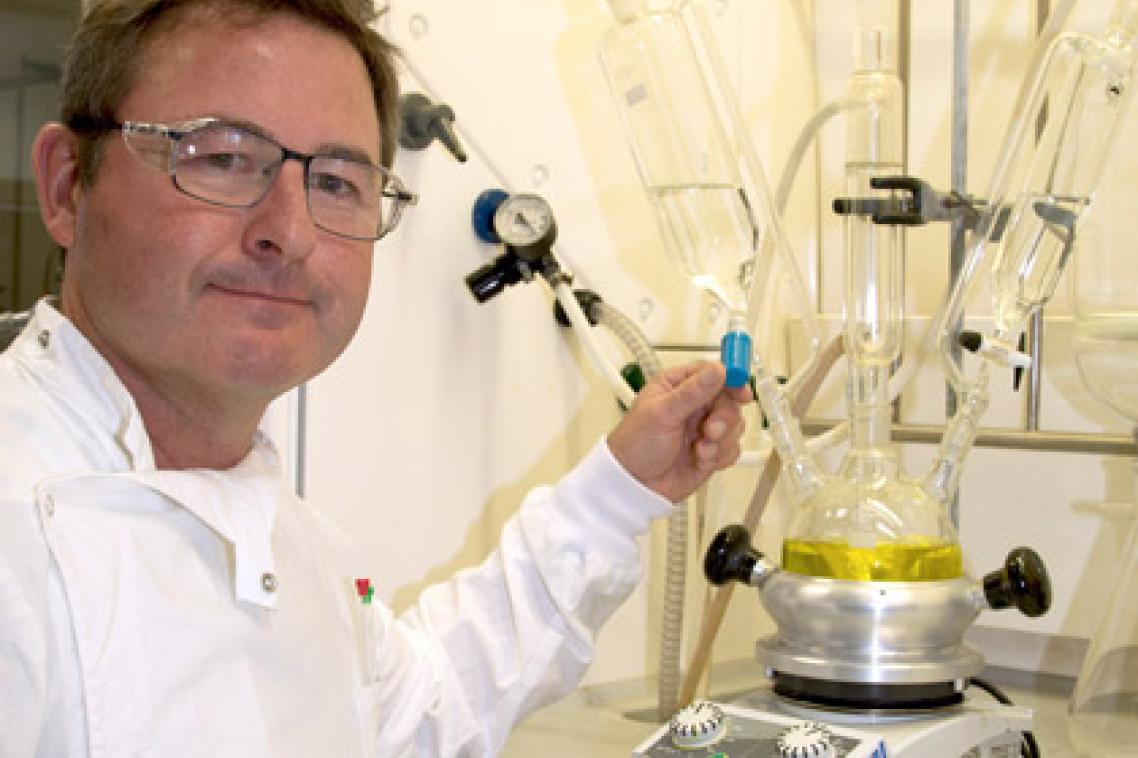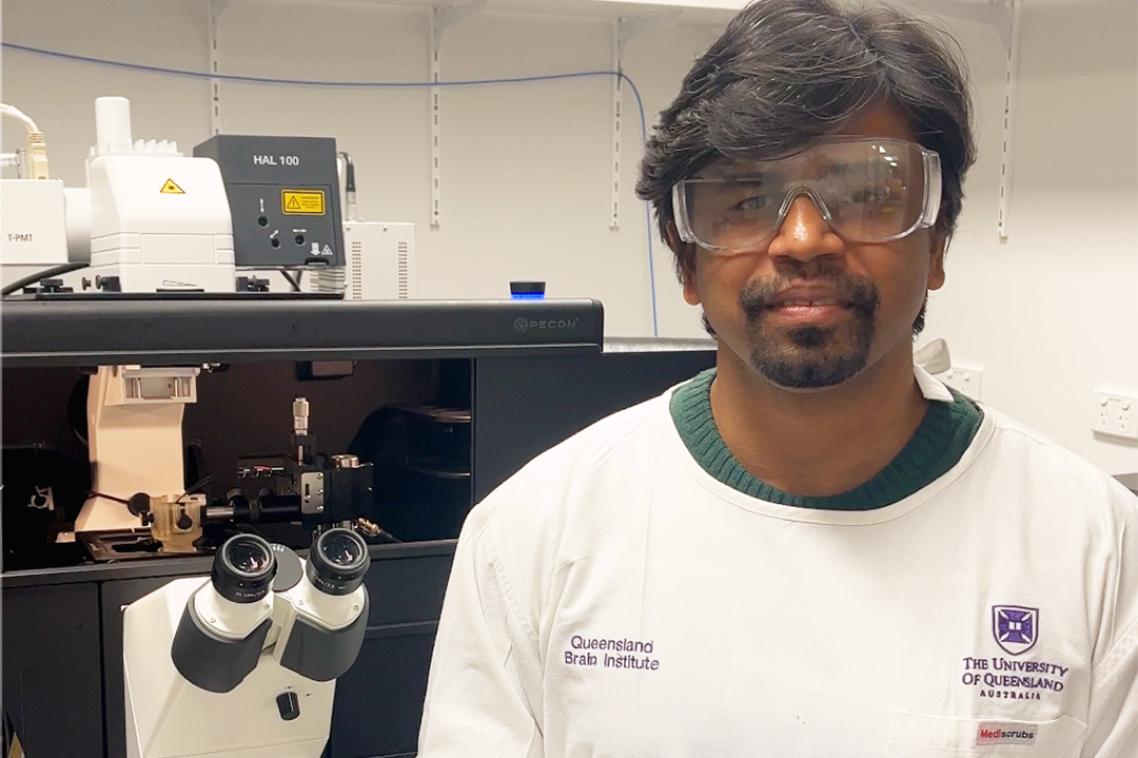New technique offers potential for more affordable drugs

University of Queensland researchers have pioneered a drug development technique that could pave the way for a new class of low-cost medicines.
The researchers, led by Professor David Fairlie and Dr Robert Reid from UQ’s Institute for Molecular Bioscience (IMB), designed a technique that reduces large proteins to small molecules suitable for use as drugs.
Professor Fairlie said the result was a smaller, more affordable version of a powerful human inflammatory protein, complement protein C3a, that helps defend against disease.
C3a costs thousands of dollars per milligram to manufacture commercially and degrades in minutes in blood, making it too expensive and unstable to be easily used in medicines.
The researchers have designed a small molecule that retains the same potent activities of C3a but is much cheaper and more stable for drug development.
“Despite the importance of proteins to nearly every function in the body, their use in science, industry and medicine is significantly restricted by their high cost and instability,” Professor Fairlie said.
“A holy grail in chemistry has been to find a way to reduce large proteins down to much smaller, simpler and cheaper molecules with the same activities.
“We have done exactly that, opening up exciting new avenues for chemists to downsize valuable human proteins and obtain affordable new diagnostics and drugs for the detection and treatment of human diseases,” he said.
Dr Reid said the team had identified the key components of the protein that fought disease.
“We have developed a way of using chemical scaffolds to control the molecule’s shape and reproduce protein functionhe said.
The research, published in leading scientific journal Nature Communications, was supported by the National Health and Medical Research Council and the Australian Research Council.
To discuss commercial opportunities around this research, contact Dr Mark Ashton on 07 3346 2186 or m.ashton@uniquest.com.au
To donate to Professor Fairlie’s drug discovery research, visit www.imb.uq.edu.au/donate or call (07) 3346 2134.
The Institute for Molecular Bioscience (IMB) is a research institute of The University of Queensland that aims to improve quality of life by advancing medical genomics, drug discovery and biotechnology.
Media: IMB Communications Manager Bronwyn Adams, 0418 575 247, 07 3346 2134 or b.adams@imb.uq.edu.au
Topics
Related articles

New ultrasound imaging to map drug delivery into the brain

Staying physically active cuts risk of early death by 40 per cent
Media contact
UQ Communications
communications@uq.edu.au
+61 429 056 139
